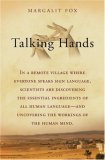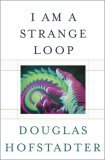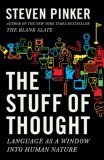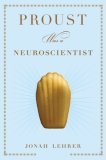January 18, 2008
Big Brain: The Origins and Future of Human Intelligence by Gary Lynch and Richard Granger (Palgrave-MacMillan)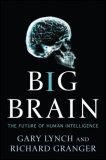
Our big brains, our language ability, and our intelligence make us uniquely human. But barely 10,000 years ago (a mere blip in evolutionary time) human-like creatures called “Boskops” flourished in South Africa. They possessed extraordinary features: forebrains roughly 50% larger than ours, and estimated IQs to match–far surpassing our own. Many of these huge fossil skulls have been discovered over the last century, but most of us have never heard of this scientific marvel.
Prominent neuroscientists Gary Lynch and Richard Granger compare the contents of the Boskop brain and our own brains today, and arrive at startling conclusions about our intelligence and creativity. Connecting cutting-edge theories of genetics, evolution, language, memory, learning, and intelligence, Lynch and Granger show the implications of large brains for a broad array of fields, from the current state of the art in Alzheimer’s and other brain disorders, to new advances in brain-based robots that see and converse with us, and the means by which neural prosthetics– replacement parts for the brain–are being designed and tested. The authors demystify the complexities of our brains in this fascinating and accessible book, and give us tantalizing insights into our humanity–its past, and its future.
Comments (1)
- cognitive science,mind,new books
January 3, 2008
 The Book A Month Challenge theme for January is time, an excellent choice that should be easy to connect with “books on the mind.” I think the hard part will be picking out one book to read! I’d especially like to find a good book on subjective time experience, or maybe something in the anthropology of time, comparing time experiences across cultures. Here are some possibilities:
The Book A Month Challenge theme for January is time, an excellent choice that should be easy to connect with “books on the mind.” I think the hard part will be picking out one book to read! I’d especially like to find a good book on subjective time experience, or maybe something in the anthropology of time, comparing time experiences across cultures. Here are some possibilities:
Or, already in my library waiting to be read (sometime!):
Here’s a “LibraryThing tagmash” on time, mind
and one on time, anthropology
Comments (1)
- Book A Month Challenge,culture,mind,reading,reality
December 19, 2007
Comments (0)
- mind
December 12, 2007
ReadWriteWeb (that can be a tonguetwister if I try to say it out loud!) posted about the Human Brain Cloud, a “massively multiplayer word association game.” I especially like the “view the cloud” tab, where you can type in a word to see what associations it has. The site sometimes gets overloaded, so if you get an error message, just try again later.
The same ReadWriteWeb post also mentions an interesting study on ‘Google and the Mind: Predicting Fluency with PageRank’:
ABSTRACT—Human memory and Internet search engines face a shared computational problem, needing to retrieve stored pieces of information in response to a query. We explored whether they employ similar solutions, testing whether we could predict human performance on a fluency task using PageRank, a component of the Google search engine. In this task, people were shown a letter of the alphabet and asked to name the first word beginning with that letter that came to mind. We show that PageRank, computed on a semantic network constructed from word-association data, outperformed word frequency and the number of words for which a word is named as an associate as a predictor of the words that people produced in this task. We identify two simple process models that could support this apparent correspondence between human memory and Internet search, and relate our results to previous rational models of memory.
Siva Vaidyanathan at the “Googlization of Everything” was not that impressed by the study though.
Comments (0)
- mind

 The
The 